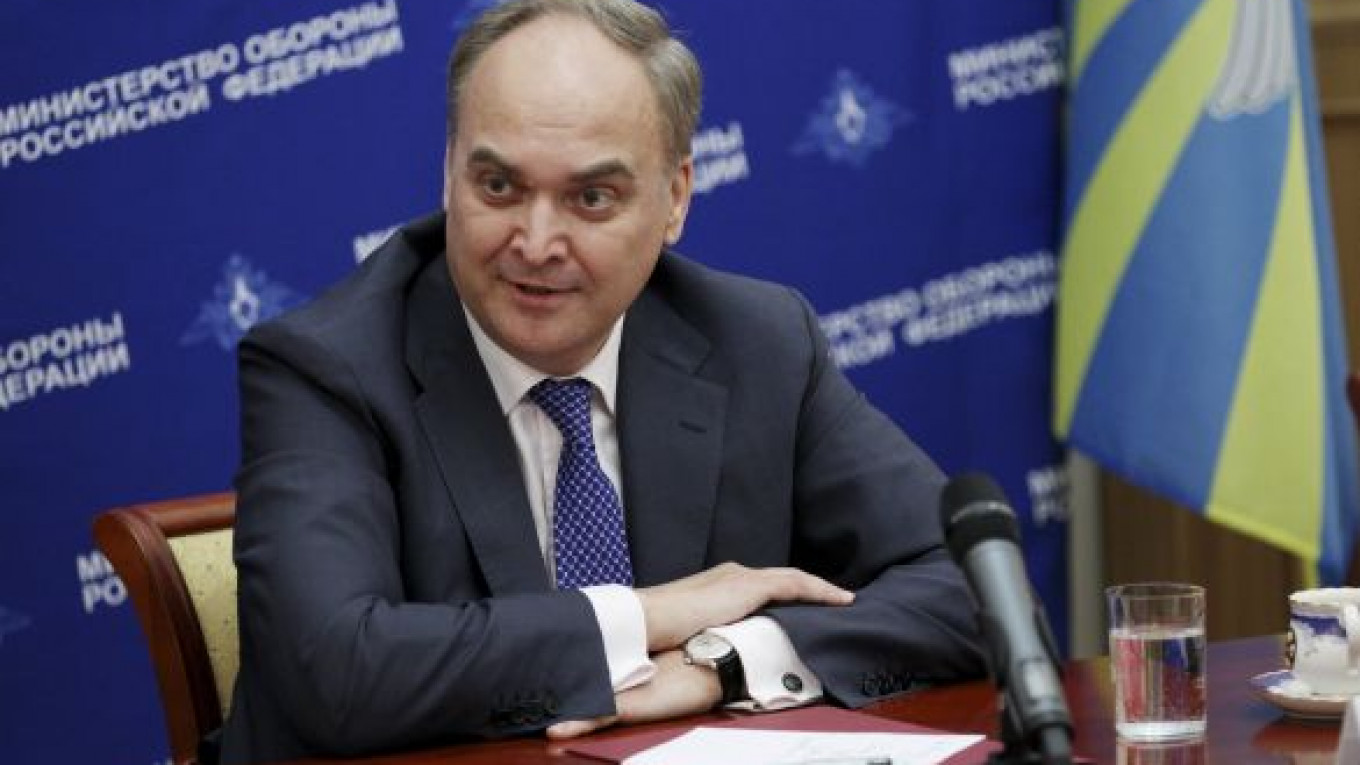Moscow will develop and deploy new rockets to counter a U.S.-driven European missile shield as long as NATO frustrates Russia in talks to cooperate over missile defense, according to senior Defense Ministry officials.
The optimism after last year’s Russia-NATO summit in Lisbon has been falling inexorably because the Western alliance is not heeding Moscow’s reservations, Deputy Defense Minister Anatoly Antonov told The Moscow Times.
“They listen to us carefully and say they understand our concerns, but at the same time they continue to implement their plans for expanding their missile defense potential,” Antonov said in an e-mailed interview conducted last month.
Antonov pointed out that the United States has stated that it will build a radar station in Turkey, missile interceptor bases in Romania and Poland, and deploy Aegis missile defense ships from a naval base in Spain.
“We are not satisfied with these developments. Our partners are not prepared for the sort of cooperation offered by us — for a joint European missile defense,” he said. “They guarantee that the missile defense system will not be directed at Russia’s strategic nuclear forces, but only in words.”
Alliance officials have said they would like to reach a missile defense deal with Moscow by NATO’s summit in Chicago next May, but the Kremlin has expressed growing antipathy to the project.
President Dmitry Medvedev warned last month that it could upend the “reset” with Washington and lead to a new arms race. In a video address he threatened to drop out of the New START nuclear arms reduction pact and to direct the country’s own ballistic missiles against NATO’s shield.
The head of the Strategic Rocket Forces, Lieutenant General Sergei Karakayev, announced earlier this month that a planned new intercontinental ballistic missile generation would counter the Western missile shield.
The new silo-based, 100-ton missiles “will be better equipped to overcome the U.S. missile shield,” Karakayev told RIA-Novosti.
The yet unnamed liquid-fueled rockets should replace the country’s Soviet-era R36 missiles, codenamed “Satan” by NATO, the general said.
Karakayev said his forces were busy introducing and upgrading other weapons like the Yars, Topol and Bulava missiles, in accordance with Medvedev’s announcement that Moscow would take steps to strengthen national security in light of U.S. actions to deploy the missile shield.
NATO is adamant that Russia has nothing to fear from the missile shield because it is purely defensive.
But Deputy Defense Minister Antonov explained that this does not dispel Moscow’s doubts.
“The basic principle of defining security threats remains the same all along: If new arms are deployed in such a way that they reduce your defense capability, then that is bad. There is no point in further analyzing if these weapons are defensive or offensive,” he said.
“You must take into account that missile defense radars and satellites have reconnaissance capabilities. These and other factors are negatives for Russia in the deployment of a European missile shield,” he said.
Antonov pointed out that Washington had shown a similar stance when it argued strongly against Russian plans to sell “purely defensive” S-300 anti-aircraft missiles to Iran.
Moscow canceled the deal in 2010, saying it would violate UN Security Council sanctions.
Asked about U.S. scientists’ doubts that NATO’s missile shield would ever work as envisaged by Western officials, Antonov said the system’s effectiveness will only be known after it has been put in place and Moscow was obliged to assume it can work.
“We have a duty to take the potential of U.S. anti-missile weapons into account, which, under certain conditions, could intercept our missiles,” he said.
But the deputy minister also stressed that the door for further missile defense cooperation talks remains open.
A career diplomat, Antonov joined the Defense Ministry last February after serving seven years as director of the Foreign Ministry’s security and disarmament department.
A Message from The Moscow Times:
Dear readers,
We are facing unprecedented challenges. Russia's Prosecutor General's Office has designated The Moscow Times as an "undesirable" organization, criminalizing our work and putting our staff at risk of prosecution. This follows our earlier unjust labeling as a "foreign agent."
These actions are direct attempts to silence independent journalism in Russia. The authorities claim our work "discredits the decisions of the Russian leadership." We see things differently: we strive to provide accurate, unbiased reporting on Russia.
We, the journalists of The Moscow Times, refuse to be silenced. But to continue our work, we need your help.
Your support, no matter how small, makes a world of difference. If you can, please support us monthly starting from just $2. It's quick to set up, and every contribution makes a significant impact.
By supporting The Moscow Times, you're defending open, independent journalism in the face of repression. Thank you for standing with us.
Remind me later.


